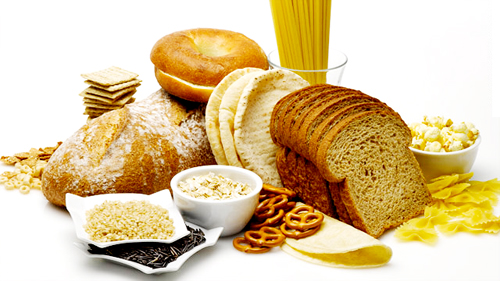Dr. Juhi Gulati
Celiac disease is a digestive disease that damages the small intestine and interferes with absorption of nutrients from food. People who have celiac disease cannot tolerate gluten, a protein in wheat, rye and barley. Gluten is found mainly in foods but may also be found in everyday products such as medicines, vitamins. When people with celiac disease eat foods or use products containing gluten, their immune system responds by damaging or destroying villi-the tiny, fringe like protrusions lining the small intestine.
Celiac disease is genetic, meaning it runs in families. Sometimes the disease is triggered-or becomes active for the first time-after surgery, pregnancy,viral infection or severe emotional stress.
CELIAC DISEASE TREATMENT:
A gluten-free diet is a diet that excludes foods containing gluten. Gluten is a protein found in wheat, barley, rye, malts and triticale. It is used as a food additive in the form of a flavoring, stabilizing or thickening agent, often as “dextrin”. A gluten-free diet is the only medically accepted treatment for celiac disease.
DIET DETAILS-
Switching to a gluten-free diet is a big change and, like anything new, it takes some getting used to. You may initially feel deprived by the diet’s restrictions. However, try to stay positive and focus on all the foods you can eat. You may also be pleasantly surprised to realize how many gluten-free products, such as bread and pasta, are now available.
If you’re just starting with a gluten-free diet, it’s a good idea to consult a dietitian who can answer your questions and offer advice about how to avoid gluten while still eating a healthy, balanced diet.
ALLOWED FOODS-
* Many healthy and delicious foods are naturally gluten-free
*Beans, seeds, nuts in their natural, unprocessed form
*Fresh eggs
*Fresh meats, fish and poultry (not breaded, batter-coated or marinated)
*Fruits and vegetables.
*Most dairy products
It’s important to make sure that they are not processed or mixed with gluten-containing grains, additives or preservatives. Many grains and starches can be part of a gluten-free diet.
* Amaranth, * Buckwheat, * Corn and cornmeal,
*Flax, *Gluten-free flours (rice, soy, corn, potato, bean), * Hominy (corn),* Millet, * Rice, *Soy.
AVOID FOODS-
*Wheat, wheat berries, wheat bran, wheat germ, wheatgrass, or any form of the word wheat (other than buckwheat, which is an unrelated plant)
*Barley, barley malt, barley flour, or any form of theword barley.
*Rye, rye flour, pumpernickel flour, or any form of the word rye.
*Oats, oatmeal, oat flour, oat groats, or any form of the word oats, if your doctor has advised you to avoid oats. If your doctor permits oats on your gluten-free diet, look for gluten-free oats.
Be especially alert for the presence of wheat and gluten in the following:
*Breads, pastries, cakes, cookies, crackers, doughnuts, pies, pretzels, and all other baked goods.
*Breakfast cereals, both hot and cold.
*Pasta, rice noodles, pure buckwheat, soba noodles, and pastas from allergy-friendly manufacturers are good alternatives for home cooking.
*Snack foods, especially if seasoned or highly processed.
*Soups, gravies, and thickened sauces.
*Salad dressings
Watch for cross-contamination-
Cross-contamination occurs when gluten-free foods come into contact with foods that contain gluen. It can happen during the manufacturing process. Cross-contamination can also occur at home if foods are prepared on common surfaces or with utensils that weren’t thoroughly cleaned after being used to prepare gluten-containing foods. Using a common toaster for gluten-free bread and regular bread is a major source of contamination.
Risks
Not getting enough vitamins
People who follow a glutten-free diet may have low levels of certain vitamins and nutrients in their diets. Many grains are enriched with vitamins. Avoiding grains with a glutten-free diet may mean eating fewer of these enriched products. Ask your dietitian to review your diet to see that you’re getting enough of these key nutrients:
* Iron
* Calcium
* Fiber
* Thiamin
* Riboflavin
(The author is ex-dietician Hero DMC Heart Institute, Ludhiana)


